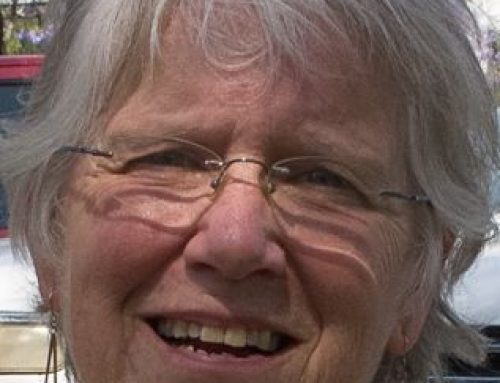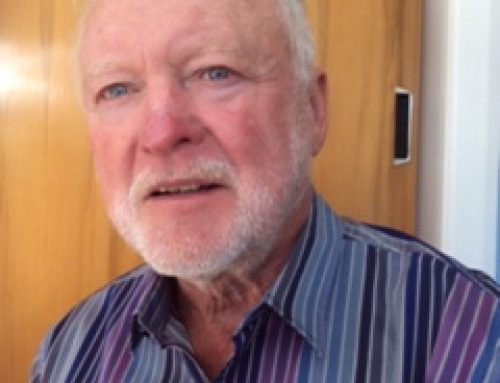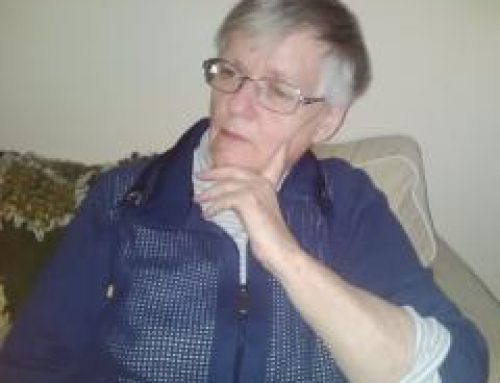Every time I see you in the spring, your hands are dark with the expensive soil you till into those waiting flower beds. It comes in big yellow bags and never sits for long—within days the shovel and wheelbarrow are out for your annual spring performance, you the director, your husband the reluctant player. But today, it’s just you. The hem of the black dress you wore to the service is hiked up, and your knees are as muddy as your hands.
I took out the living room curtains after Cora died. We always fought about whether to keep them open or closed. I wanted to look up from my books and watch the neighbourhood move, not caring about who could see inside, but she preferred privacy. We compromised—open during the day, closed as soon as the inside lights blinked on. In truth, I didn’t get much reading done—with a book open in my lap I waited for you to come out and toil in your garden, filled then with shrubs and grasses, never flowers.
A few months after Cora’s funeral I decided to come over, but by the time I found the tulip bulbs in the basement—the ones given to me by a cousin in Utrecht—you’d gone inside. Your husband bristled at my advice, simple things to remember about timing and storage and deadheading, but he took the bulbs all the same.
I’m not sure why you’d give them to me, he said. We don’t plant flowers.
The next day, I braved another walk. You tucked some of your grey hair behind one ear and laughed away his hesitation.
I did some reading, you said. They don’t have to be much work at all.
And they’ll probably bloom every year, I said.
Just probably?
Dutch gambling.
Ha! Dutch gambling—I like that.
Your daughter Joanne comes outside. She’s changed into jeans and an old sweatshirt, creased from her suitcase. She stands with her hands on her hips as she surveys the garden, still springbare between your husband’s landscape stones. The shrubs, clipped back to the ground, haven’t sprouted yet, and you work between them with your hand trowel, digging. Joanne’s bearing is just like yours, so unlike her twin sister, who always looked as though someone was whispering at her from the ground and she was too polite not to listen. Different ways of seeing, those two. Bloom and wilt.
Joanne is holding her tongue today, I can see. Like you, she’s taking solace in rhythms, routines. Looking to the earth for the reasons a hungry stretch of highway can devour a father and a sister. Half a family. She asks you something. You sit back, shield your eyes from the sun and nod, make a motion towards the back of the house. She unhooks the garden hose from its holder and begins watering the clipped dogwood and spirea stems.
I move closer to my window. For years, this was our little game. Send your husband off to water, turn to wave at my window, flash two or three fingers. Two or three o’clock. The old bench down by Princess Point. We’ll talk about gardens we were never given space for, books we say we’ll get to but don’t, trips we would have taken, if only. But you don’t turn. You just dig.
I’m sorry about yesterday. I have a single scratch across my jaw where your fingernail caught me. I didn’t expect your anger, or the quick hand flashing up to slap me.
Pieter, go home, you hissed. And take all of that with you.
You’ve always had a temper—you’d sometimes carry down to the bench the leftover friction-heat of an argument with your husband—but it never touched me. I cooled you. Like the darkness of a root cellar, or the damp blackness of good earth, inches down.
I said, But look, I wanted to give—
No, you said. No more.
Perhaps a care-basket of jams and perennial seed packets wasn’t the best choice—I just thought that the someday you always talked about had arrived. Selfish, really. And poor timing, the day before the funeral, with Joanne freshly unpacked upstairs. Still, it was a lovely service. You didn’t see me, but it was easy to hide amongst so many friends and family and neighbours.
Joanne hasn’t moved much—she’s flooding the garden, her shoulders hunched over as the water carries the soil away. You put down your hand trowel and move next to your daughter. She lets you take the sprayer and put an arm around her. You stand together like that for a while, your trembling backs to the neighbourhood, the sun baking the neat rows of dirt-encrusted tulip bulbs laid out beside the garden.
November 2015

 Brent van Staalduinen lives and finds his voice in Hamilton. His novel SAINTS, UNEXPECTED will be published in April 2016 by Invisible Publishing, and his short work can be found in Prairie Fire, The New Quarterly, The Dalhousie Review, EVENT Magazine, and Litro. He holds an MFA in creative writing from UBC and teaches writing at Redeemer University College.
Brent van Staalduinen lives and finds his voice in Hamilton. His novel SAINTS, UNEXPECTED will be published in April 2016 by Invisible Publishing, and his short work can be found in Prairie Fire, The New Quarterly, The Dalhousie Review, EVENT Magazine, and Litro. He holds an MFA in creative writing from UBC and teaches writing at Redeemer University College.


